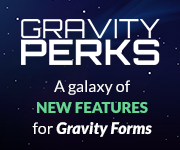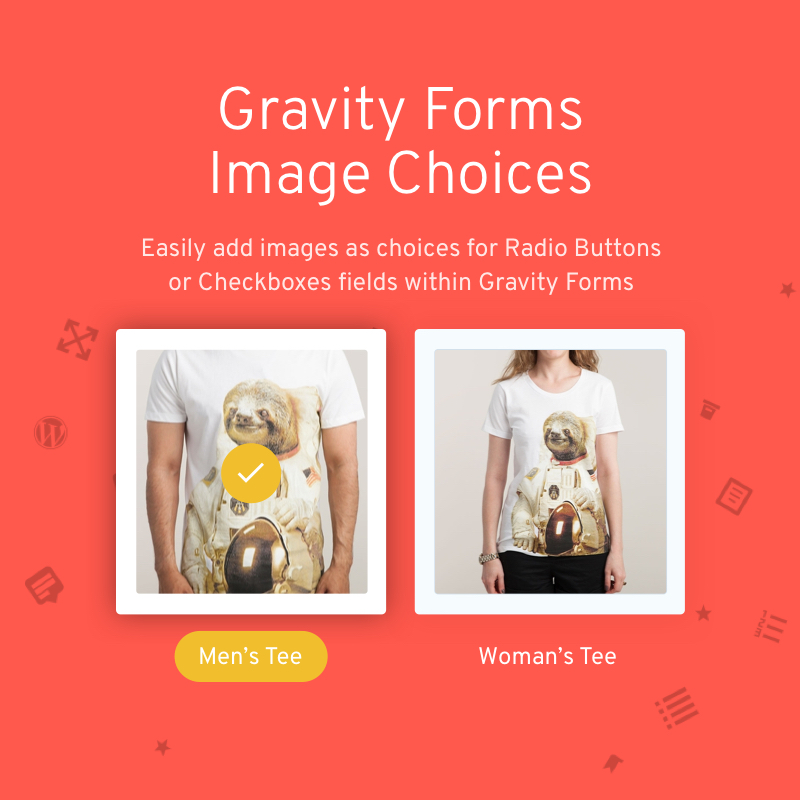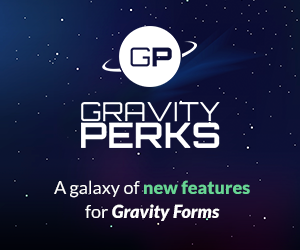When it comes to creating forms on your WordPress website, choosing the right form builder plugin is crucial for a seamless user experience and functionality. Gravity Forms vs Fluent Forms are two prominent players in the realm of WordPress form builders. Each has its unique strengths and features tailored to meet various user needs, from simple contact forms to complex multi-page forms with conditional logic.
Gravity Forms has been a staple in the WordPress community for its robust and developer-friendly platform. It offers a wide range of add-ons and integrations, allowing you to expand its functionality. On the other hand, Fluent Forms is known for its user-friendly interface and quick form-building process. It provides a host of pre-built templates that can help you save time while maintaining a professional look for your forms.
Your choice between Gravity Forms and Fluent Forms will largely depend on your specific requirements, the level of customization you need, and your budget. Both are equipped to handle the basic function of form building, but sorting through their differences in features, ease of use, and scalability is key to determining which will best support your website’s goals.
Evaluation of Form Builders
When selecting a form builder for your WordPress site, it’s essential to weigh the features, user experience, and customization capabilities of popular options like Gravity Forms and Fluent Forms.
WordPress Form Plugin Analysis
Gravity Forms and Fluent Forms are both renowned in the WordPress community. Gravity Forms, an established player, offers robust functionality with a wide variety of integrations. On the other hand, Fluent Forms presents itself as a competitive alternative, boasting a fast and efficient form-building experience.
Form Builder Features Comparison
| Feature | Gravity Forms | Fluent Forms |
|---|---|---|
| Drag and Drop | Yes | Yes |
| Pre-built Templates | Available | Available |
| Conditional Logic | Advanced | Basic to Advanced |
| User Registration | Yes, with add-on | Built-in feature |
| Payment Integration | Extensive options with add-ons | Direct integration with few gateways |
| Responsive Design | Fully responsive | Fully responsive |
Both plugins offer drag-and-drop builders, which enhance the user-friendly aspect of form creation. They also support responsive design, ensuring that your forms will look good on any device.
Ease of Use and Customization Options
Gravity Forms impresses with its broad array of advanced customization options, catering to users with coding expertise and those without. Hooks and filters enable a deep level of customization, but this may require a steeper learning curve.
Fluent Forms is designed with simplicity in mind, featuring a minimalist interface and an intuitive setup that is user-friendly for all skill levels. Customization can be achieved through a range of straightforward options without the need for coding.
Both form builders allow you to create highly personalized, complex forms. However, if ease of use is your priority, Fluent Forms may appeal more, whereas Gravity Forms offers both novice-friendly and developer-oriented features.
Template and Design Flexibility
When choosing a form plugin for your WordPress site, you should consider your needs for template variety and design customization. Both Gravity Forms and Fluent Forms offer options that cater to these needs in different ways.
Prebuilt Form Templates
Gravity Forms provides 15+ pre-built form templates to help you quickly set up forms for common uses like surveys, registrations, and orders. However, the selection is not as vast as Fluent Forms, which boasts a larger library of templates to choose from. With Fluent Forms, you get access to a broader array of form templates that are ready to use right out of the box, giving you a head start in creating your form.
| Plugin | Variety of Prebuilt Templates | Unique Template Features |
|---|---|---|
| Gravity Forms | Moderate | Advanced fields and functions |
| Fluent Forms | High | Wide range of use-case templates |
Contact Form Customization
Both plugins allow deep customization of contact forms. With Gravity Forms, you have the flexibility to tailor every aspect of your form using its robust form editor. Fluent Forms also offers a wide range of customization options, enabling you to modify form fields, labels, and structure to fit your exact requirements.
- Gravity Forms: Strong customization capabilities with a focus on developer-friendly filters and hooks.
- Fluent Forms: Intuitive drag-and-drop interface for fast and easy form adjustments.
Design and Layout Features
When discussing design and layout features, Gravity Forms stands out for its support of multi-column layouts, allowing for more complex form designs. It is recognized for providing a powerful visual form editor that handles layout features effectively. On the other hand, Fluent Forms introduces a sleek interface for layout management, including responsive column-based layouts that automatically adapt to different screen sizes.
- *Multi-column layouts* are supported.
- Advanced styling options for developers.
- Adaptive form templates for mobile responsiveness.
- Aesthetic design customizations are easily accessible to users without coding skills.
Integrations and Functionalities
Choosing the right form plugin is crucial for your website’s interaction with users and services. The right integrations and functionalities can significantly enhance your data collection and processing capabilities.
Marketing and Payment Integrations
Gravity Forms offers a vast array of marketing integrations. You can connect to popular CRM platforms like Zoho and HubSpot, streamlining your lead-gathering process. Gravity Forms supports numerous payment gateways, including Stripe, Square, Authorize.net, PayPal, and others, so you can easily process transactions.
Fluent Forms also provides a range of marketing tools and integrates smoothly with various CRM software, though it may have fewer options than Gravity Forms. Payment is facilitated with integrations like Stripe and PayPal, allowing for reliable transaction management.
Advanced Functionalities
Both Gravity Forms and Fluent Forms allow you to extend form capabilities using third-party integrations. You can enhance your forms with reCAPTCHA to prevent spam, and use conditional logic for dynamic form experiences.
- Email Notifications: Highly customizable and can integrate with third-party services for advanced email workflows.
- Conditional Logic: Robust conditions for form fields and notifications.
- Form Building: Includes drag-and-drop builders and a wide range of field types.
- Email Notifications: Offers notifications and confirmations, focusing on ease of use.
- Conditional Logic: Allows you to show or hide fields, send emails, or trigger integrations based on user input.
- Form Building: Provides a user-friendly interface with basic to advanced fields for form construction.
Support and Resources
When you are deciding between Gravity Forms and Fluent Forms, understanding the type of support and resources each provides can greatly impact your user experience. Both plugins offer a wealth of documentation and tutorials, along with customer support, providing you with the necessary tools and guidance.
Documentation and Tutorials
Gravity Forms:
- Documentation: Comprehensive User Guides, FAQs, and detailed Developer Docs
- Tutorials: A mix of written and video tutorials catering to both beginners and advanced users
Fluent Forms:
- Documentation: Extensive documentation with a user-friendly Knowledge Base
- Tutorials: Video tutorials and walkthroughs available for users of all levels
Customer Support and Community
Gravity Forms:
- Customer Support: Email support with priority for license holders, and ticketing system for logged issues
- Community: Official forums and community groups on social media to engage with other users and experts
Fluent Forms:
- Customer Support: Support available via email, support tickets, and real-time chat within working hours
- Community: Active community on platforms like Facebook where users can seek peer advice and tips
Licensing and Cost Efficiency
When considering Gravity Forms and Fluent Forms for your WordPress site, it’s essential to understand their licensing structures and the cost-efficiency of each option, including the specifics of pricing, licenses, and available add-ons.
Pricing Structure
Gravity Forms offers several pricing tiers:
- Basic License: $59/year – Suitable for one site with basic add-ons.
- Pro License: $159/year – Applicable for three sites with pro add-ons.
- Elite License: $259/year – Works on unlimited sites with elite add-ons and priority support.
Fluent Forms presents a more streamlined pricing approach:
- Single Site License: $59/year – Includes all features and add-ons for one site.
- Agency License: $129/year – Enables use on unlimited sites with all features.
Both offer annual renewal discounts which can impact long-term cost efficiency.
Available Licenses and Add-ons
Gravity Forms provides various licenses with tiered features:
- Basic License: Access to basic add-ons.
- Pro License: Includes additional add-ons such as Stripe integration.
- Elite License: Unlocks all premium add-ons, including priority support.
Add-ons for Gravity Forms vary based on the license tier, ensuring that you pay for what you need.
Fluent Forms maintains simplicity with two license options:
- Single Site: You receive all available features and add-ons, including the Stripe add-on.
- Agency: Same benefits as Single Site, extendable to unlimited sites.
Fluent Forms emphasizes a cost-effective strategy, offering full access to their features regardless of the license type, which could be more economical if you require advanced capabilities across multiple websites.
User Experience and Accessibility
When considering Gravity Forms and Fluent Forms for your WordPress site, you’ll find that both offer responsive design and intuitive user interaction which are crucial for maintaining high user engagement and ensuring your forms are accessible across all devices.
Responsive Forms on WordPress
Gravity Forms:
- Responsive Design: Gravity Forms automatically adjusts to fit the device’s screen, ensuring your users can comfortably fill out forms on smartphones, tablets, and desktops.
- User Registration: Creating user registration forms is straightforward, and they seamlessly adapt to all devices, contributing to an efficient sign-up process.
Fluent Forms:
- Mobile-Friendly: Fluent Forms prioritizes mobile users by providing out-of-the-box responsive forms that look and work well on any device.
- Design Customization: Offers a variety of options for styling your forms to match your brand while maintaining responsiveness.
User Interaction and Engagement
Gravity Forms:
- Spam Filtering: Incorporates features like CAPTCHA and honeypot methods to reduce spam, ensuring a better experience for genuine users.
- Notifications: Automated, customized notifications keep users informed after form submission, which helps in maintaining engagement.
- Surveys, Polls, and Quizzes: Includes addons for creating interactive content, capturing user feedback effectively while ensuring high participation rates.
Fluent Forms:
- Spam Protection: Offers built-in features such as Google reCAPTCHA to safeguard your online forms from spam without compromising user experience.
- Instant Notifications: Users receive immediate confirmations after submissions, with options for further personalized messages.
- Feedback Tools: Simplifies the creation of surveys and quizzes with an intuitive drag-and-drop builder to increase user engagement.
The Wrap Up
Throughout this comparison, you’ve explored the features and capabilities of both Gravity Forms and Fluent Forms. Here’s a summary to assist in your decision-making process:
Ease of Use
- Gravity Forms: Robust yet user-friendly interface
- Fluent Forms: Intuitive design and navigation
Functionality
- Gravity Forms: Offers a wide range of advanced functionalities
- Fluent Forms: Provides essential features with a focus on simplicity
Support and Resources
- Gravity Forms: Comprehensive support options and extensive documentation
- Fluent Forms: Adequate support with a growing knowledge base
Pricing
- Gravity Forms: Premium pricing reflects its extensive features
- Fluent Forms: More affordable for basic form-related needs
Considering the above points, if your needs include sophisticated form functionalities with a greater emphasis on advanced integrations, your preference may lean towards Gravity Forms. Its capability to handle complex scenarios with an array of add-ons makes it a powerful tool for your website.
For straightforward form requirements, Fluent Forms is a viable option that balances functionality with simplicity. However, for those seeking a comprehensive solution that will cater to diverse and evolving needs, Gravity Forms is a solid recommendation. Your investment in this tool will support your website’s growth with its adaptable and robust feature set.
Frequently Asked Questions
In this section, you’ll find direct comparisons of features, integration capabilities, pricing, and customer support between Gravity Forms and Fluent Forms, as well as insights into the specific offerings of Fluent Forms’ free and Pro versions, and how both platforms handle signature collection.
What features differentiate Fluent Forms from Gravity Forms?
Fluent Forms offers a range of features such as conversational forms, which aim to improve user engagement through a step-by-step question and answer format. Unlike Gravity Forms, it also provides built-in spam protection without the need for additional plugins.
How do the integration capabilities of Fluent Forms compare with those of Gravity Forms?
While both Gravity Forms and Fluent Forms offer a variety of integrations with popular services such as Mailchimp, Slack, and Zapier, Fluent Forms includes additional integrations with CRM tools like FluentCRM directly out of the box, potentially offering a broader range to streamline your workflows.
In terms of pricing, how do Fluent Forms and Gravity Forms stack up against each other?
Fluent Forms tends to be more cost-effective, especially for users who require basic features, as it offers a free version with essential functionalities. Gravity Forms does not have a free tier; its pricing starts with a personal license catering to single-site users, tending to be more premium-oriented.
What are the key benefits of using Fluent Forms’ free version versus the Pro version?
With Fluent Forms’ free version, you can create unlimited forms and have access to basic fields and features. Upgrading to Pro unlocks advanced features like more extensive integrations, multi-page forms, and conditional logic to enrich form functionalities.
How does customer support vary between Fluent Forms and Gravity Forms?
Customer support for both platforms includes support tickets and extensive documentation. However, Gravity Forms provides additional support in the form of priority ticketing for higher-tier contracts, which may interest businesses looking for a more hands-on approach.
What options are available for collecting signatures in Fluent Forms and how do they compare with Gravity Forms?
Both platforms offer options for collecting digital signatures on your forms, an essential feature for contracts and agreements. Fluent Forms provides this capability through a dedicated signature field available in the Pro version, whereas Gravity Forms may require a separate add-on for similar functionality.





